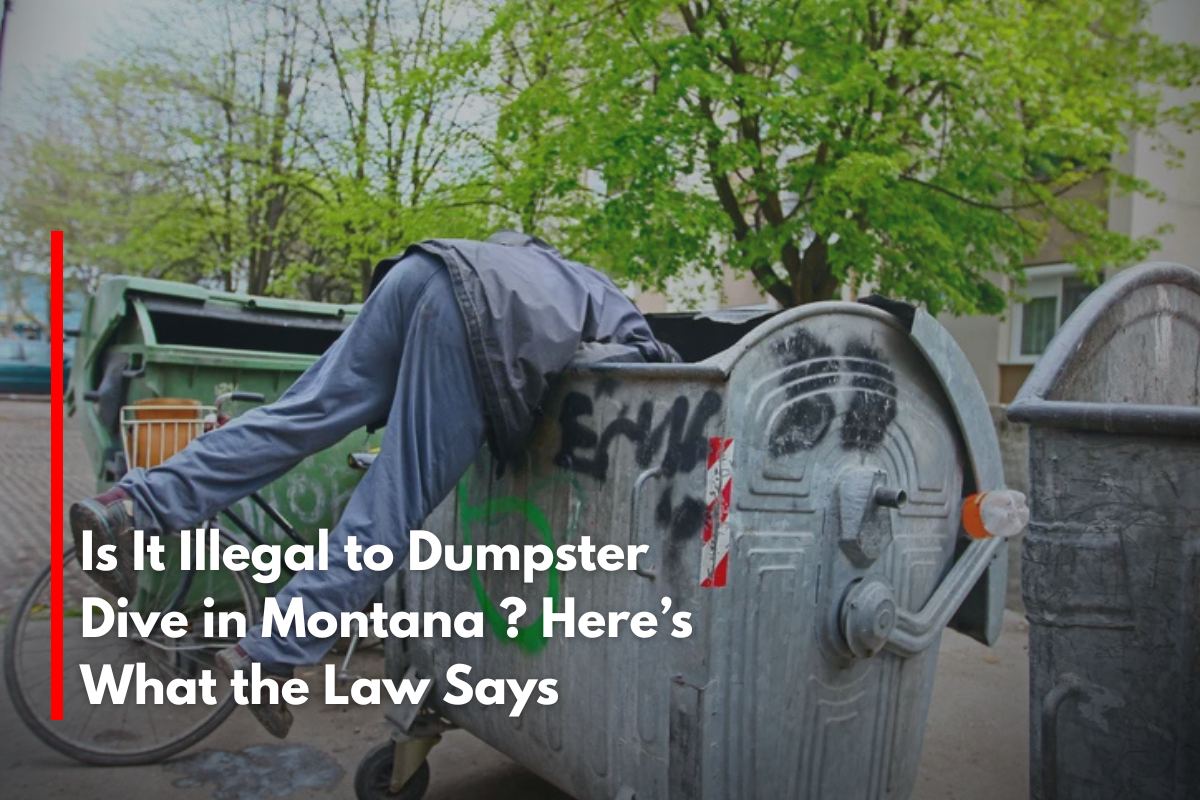Dumpster diving, the act of rummaging through trash bins to find useful items, has become a practical way for some people to save money or reduce waste. But is this activity legal in Montana? The answer is nuanced, depending largely on state laws, local ordinances, and property rights.
Statewide Legality
At the state level, Montana does not have a law that explicitly prohibits dumpster diving. Once trash is discarded, it is often considered abandoned property, and technically, the original owner relinquishes rights to those items. Therefore, dumpster diving itself is generally not illegal across Montana. However, this does not mean that you can rummage through any dumpster anywhere without potential legal consequences.
Private vs. Public Property
A main factor determining the legality of dumpster diving in Montana is the location of the dumpster. If the dumpster is on private property—such as behind a business or in a residential area—diving without permission may be considered trespassing. Many private dumpsters are protected by “No Trespassing” signs or locked gates, and entering those areas can lead to fines or arrest.
In contrast, dumpsters located on public property may be more accessible, and diving into them is less likely to constitute trespassing. However, local municipalities may impose restrictions or require permits to scavenge from public dumpsters, so it is important to check specific local regulations.
Local Ordinances in Montana Cities
Montana’s cities have different rules when it comes to dumpster diving:
In Billings, dumpster diving is explicitly illegal under City Code Section 21-212, which prohibits disturbing refuse receptacles without authorization and carries fines or arrest risk.
Great Falls also prohibits dumpster diving according to its municipal code, classifying it as a misdemeanor with possible jail time and fines.
Missoula and Bozeman do not have explicit bans on dumpster diving, but trespassing laws apply, and seeking permission to avoid legal trouble is advised.
Other towns may have varied ordinances, so it is wise to research local laws before diving in.
Theft and Abandoned Property Considerations
Even if trash is discarded, if the items inside a dumpster are not truly abandoned or still considered owned by a business for certain purposes, taking them without permission could be considered theft. The distinction between abandoned and non-abandoned property is not always clear and can impact legal outcomes.
Health and Safety Concerns
Authorities may also regulate dumpster diving based on health and safety concerns. Dumpsters may contain hazardous materials, spoiled food, or sharp objects that pose risks not only to divers but also to public health. Some cities enforce health codes that indirectly restrict dumpster diving to avoid these issues.
Responsible Dumpster Diving
If you plan to dumpster dive in Montana:
Always check for local laws and ordinances beforehand.
Avoid or seek permission to enter private property.
Respect any “No Trespassing” signs or locked dumpsters.
Consider safety and avoid hazardous materials.
Act responsibly and clean up after yourself, maintaining respect for the community.
Summary
Dumpster diving is generally legal at the state level in Montana, but local rules vary.
Private property dumpster diving without permission is illegal and considered trespassing.
Cities like Billings and Great Falls have explicit bans forbidding dumpster diving.
Municipalities like Missoula and Bozeman allow it but still require respecting property rights.
Legal risks include trespassing, theft, and public health code violations.
Always research and adhere to local laws and safety guidelines.
While dumpster diving in Montana is not outright illegal statewide, various local regulations and property rights laws mean that diving isn’t always permitted. Being informed, cautious, and respectful of private property and health concerns is essential to avoid legal trouble. If unsure, seek local guidance or permission before diving.
This approach balances resourcefulness with legality and community respect, helping individuals make the right choices in navigating dumpster diving laws in Montana.
Sources
[1] https://my1035.com/dumpster-diving-laws-in-montana/
[2] https://litefm955.com/is-dumpster-diving-legal/
[3] https://theriver979.com/dumpster-diving-great-falls-montana/
[4] https://www.legalmatch.com/law-library/article/is-dumpster-diving-illegal.html
[5] https://www.rolloffdumpsterdirect.com/dumpster-diving-illegal/











